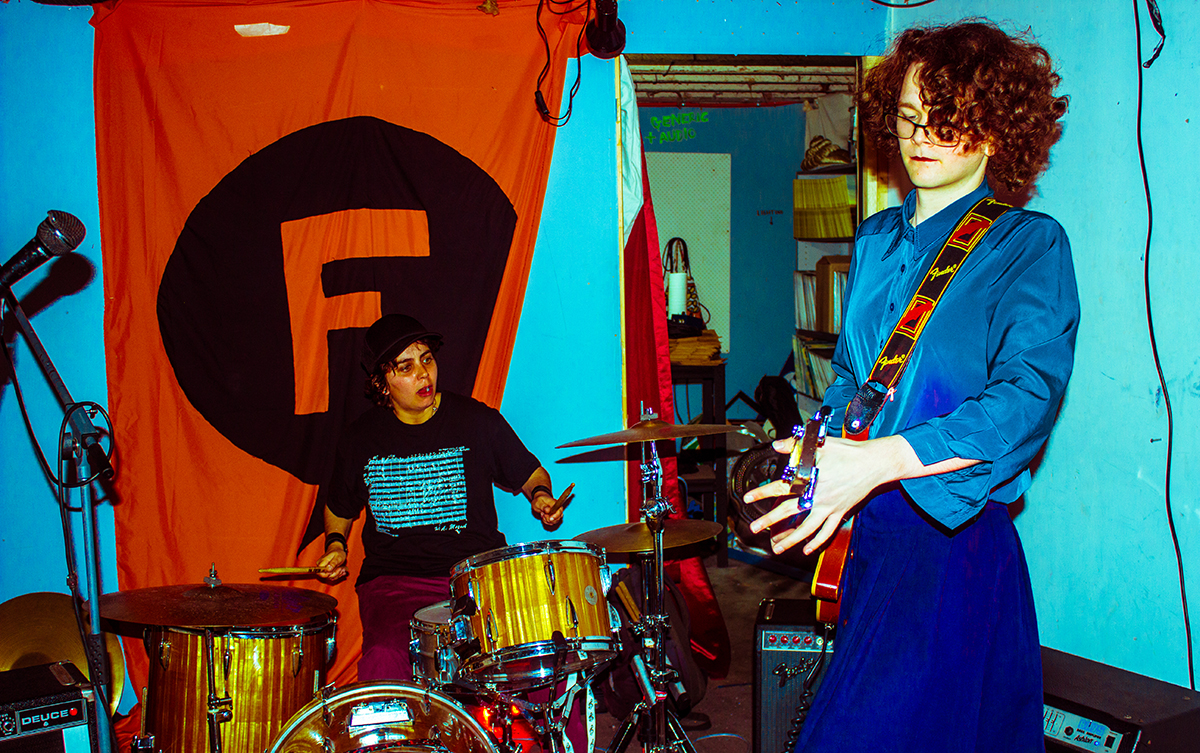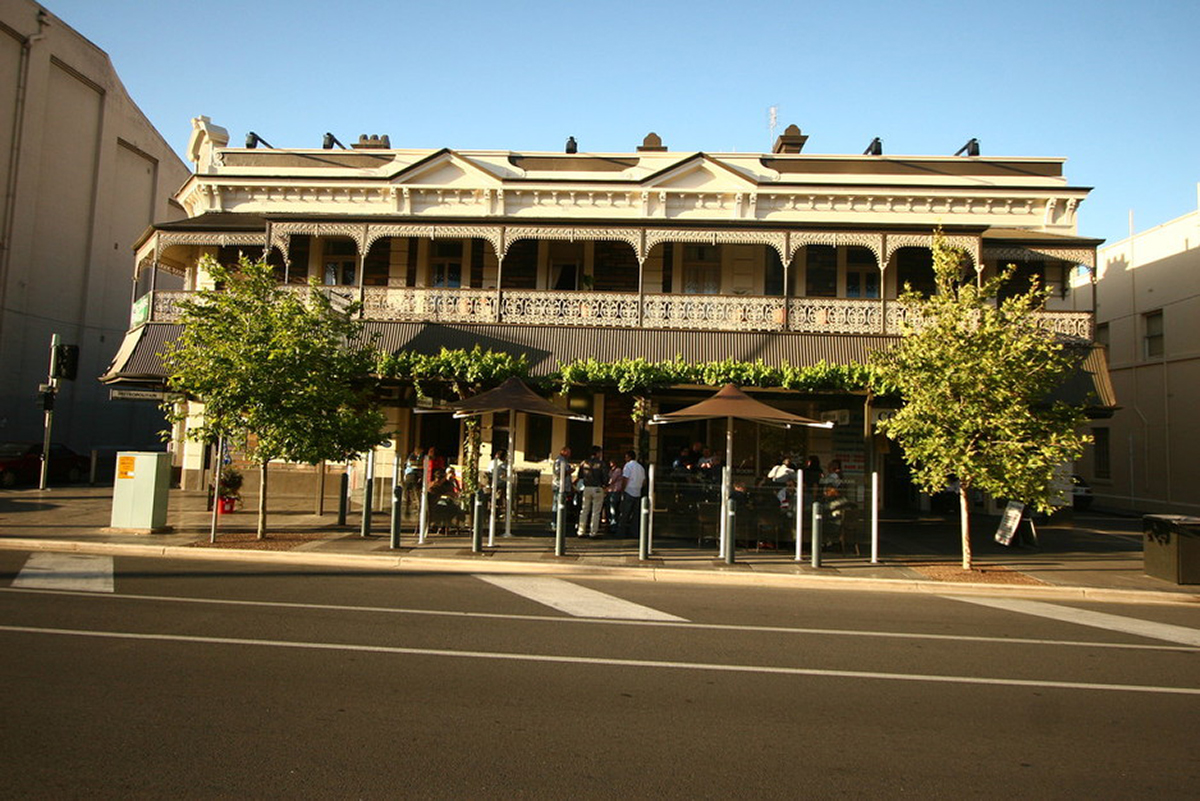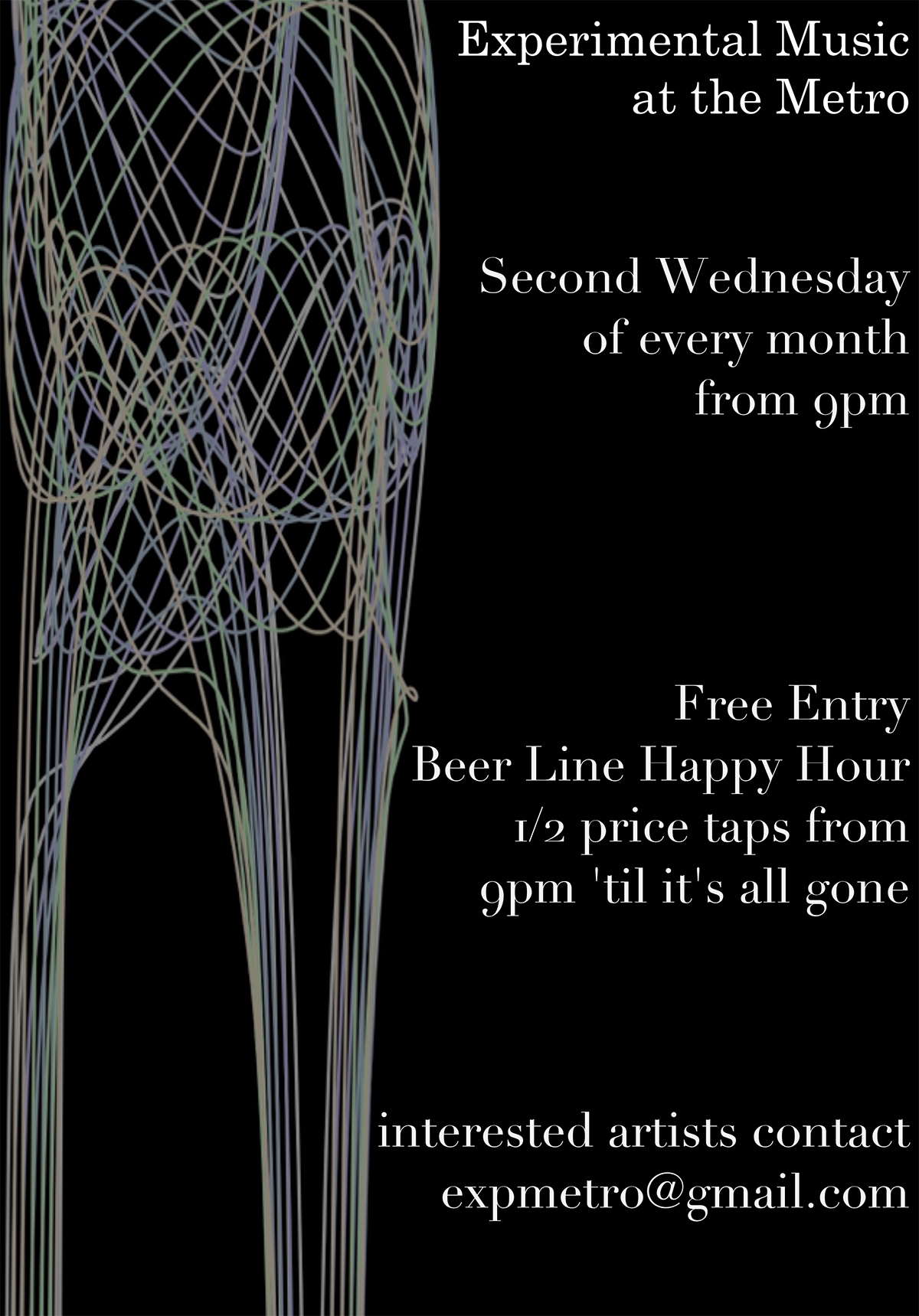
A home for experimentation: new music in Adelaide
In the second of two articles on experimental music in Adelaide — the first featuring Dan Thorpe — Chris Reid interviews Stuart Johnson aka Wolfpanther, curator of Metro Experimental Night. RT
A cornerstone of contemporary and experimental music in Adelaide is the series of monthly concerts titled Metro Experimental Night held at Adelaide’s Hotel Metropolitan. Stuart Johnson curates evenings of mainly electronic music that can range across ambient, drone, noise and all kinds of instrumental work. Importantly, Metro Experimental Night is open to a variety of performers and thus encourages emerging artists and new developments. Three acts featured on 12 July this year are good examples: sympathetic | DIVISION using synthesisers and electronics, Little-Scale also using synthesisers and electronics but stylistically quite different, and a high-intensity solo performance on guitar and effects pedals by Insomnicide.
On another evening, Wolfpanther himself performed — on miked banjo mediated through an array of electronics —with Melanie Walters on flute. Walters has a significant profile in the Adelaide scene, works with Dan Thorpe in the duo Stereo Mono and was a member of the Australian Bass Orchestra in the workshop production of Cat Hope’s new opera Speechless. The 8 November Metro Experimental Night program included a stunning solo recital by Walters who alternated between bass flute, flute and piccolo in works by German-Australian composer Felix Werder (on whose music she is writing her doctoral thesis) and Finnish composer Kaija Saariaho. Wolfpanther pointed out that it is unusual to include composed music in a Metro Experimental Night program, but the audience was enchanted.
The music in the program can be variable in quality but is always interesting and sometimes exhilarating. I spoke to Wolfpanther about Metro Experimental Night, his own work and Adelaide’s contemporary and experimental music culture.
Outline for me your curatorial approach to your program.
I took over the Experimental Night from the previous organiser in early 2016, so I inherited something of the approach it already had and particularly the name. Of course the question of what “experimental music” means is not necessarily a simple proposition; my approach was to have a very broad interpretation. I don’t have a clear-cut definition but generally it’s about genres that aren’t usually well represented in a pub live music environment, uncommon instruments; improvisation, genuine experiments… There is likely a bias towards the sort of things and people I’ve been involved with, for example a bit of modular synth, but I try to keep the nights open to as many different approaches as possible. Certainly if someone approaches me with a genre that hasn’t been represented before I’m very keen to get them involved. My aim is to be very inclusive. Doing somewhat unconventional music in a regular pub show can be pretty daunting, so I think it’s good to have a chance to get people to play to an audience open to different kinds of music and understanding that occasionally a performance might not be particularly polished. I think it’s also interesting to get people from the academic side of music to come and play a pub show.
I gather you receive no government funding for the show, but the hotel does pay the performers?
The event exists thanks to the ongoing support of the Metro which provides a guarantee that goes to paying the artists [which] allows the event to be free, and it pays for a sound tech which makes a big difference. Sometimes there are fairly straightforward setups which I could probably handle myself, but when instruments, particularly drum kits, need to be miked up it is great to have someone who knows what they are doing.

Hotel Metropolitan, Adelaide
Tell me about your own work: your ensembles and musical interests.
In the last few years I’ve played in about a dozen or so groups, ranging from Thom Bordism Group — who played regularly for a couple of years and released an album — to bands which existed for one or two gigs. I can’t really settle on one particular approach to playing music so instead I try to do lots of different things with lots of different people. Not all of it is particularly experimental; I spent some time in the Loose Cannons, a singing group which sang traditional sea shanties, and I’ve played lead guitar in a rock band, Stable Vices. I’ve also played solo, mostly in an exploration of various electronic instruments I’ve been collecting for a while, though occasionally on guitar as well. Often I’ll develop an approach for a particular show and work on that before moving on to something else immediately afterwards. Most recently I played a no input effects loop at Metro Experimental Night, which is about the most literally experimental thing I’ve done.
The experimental scene in Adelaide is small and rather fragmented. Do you think that it has the potential to develop, perhaps with targeted funding of some kind?
I guess my approach to music is as a sort of folk art. I’m not looking to do it professionally; I just think it’s really good to be involved with a community of artists and listeners and I always try to encourage a strong participatory aspect to the scene. But I acknowledge I am in a privileged position to be able to have this attitude. I would like better support for experimental music, but it’s difficult to make a living even in more popular forms of music.
The helpful thing for musicians is to be able to perform, to record, to have the opportunity for those recordings to be heard. While anyone can release online this also means everyone does and it’s hard to get noticed, so radio stations and record labels are still important. Being able to have a regular event is a big benefit since most gigs get an audience by advertising a genre, like jazz, or an established name, whereas we have a mix of genres and quite often a whole lineup of musicians almost nobody has ever heard of. Being on every month has meant being able to build a regular audience.
I think it could be nice to have funding to help bring interesting acts from interstate and have them play with locals, which would be good for creating networks for Adelaide artists to tour. We’ve had a couple of interstate acts just through good luck and with local support, for example Ancient World, an artist-run venue, brought over Helm/Croatian Amor who otherwise would have only toured the east coast and put them together with a lineup of great local acts. There have also been great small-scale festivals like Lost City, Half Strange and Bungsound bringing interesting interstate acts together with locals. These sorts of endeavours are always pretty risky and some financial support would be beneficial. I think the Adelaide Festival under Artistic Director David Sefton has done a lot for the local experimental scene — exposing audiences to very interesting music and inspiring musicians with the Unsound program to try new approaches.
Read Chris Reid’s comprehensive review of the recent Unsound Adelaide, curated by David Sefton and Mat Schulz.

–
Coming up: Metro Experimental Night, Tumut Trio, Lauren Abineri, Vlad & Rei; Metropolitan Hotel, Adelaide, 10 Jan, 2018
Top image credit: Shakey and Rosie from Insomnicide, photo © Noa Gfrerer Photography






